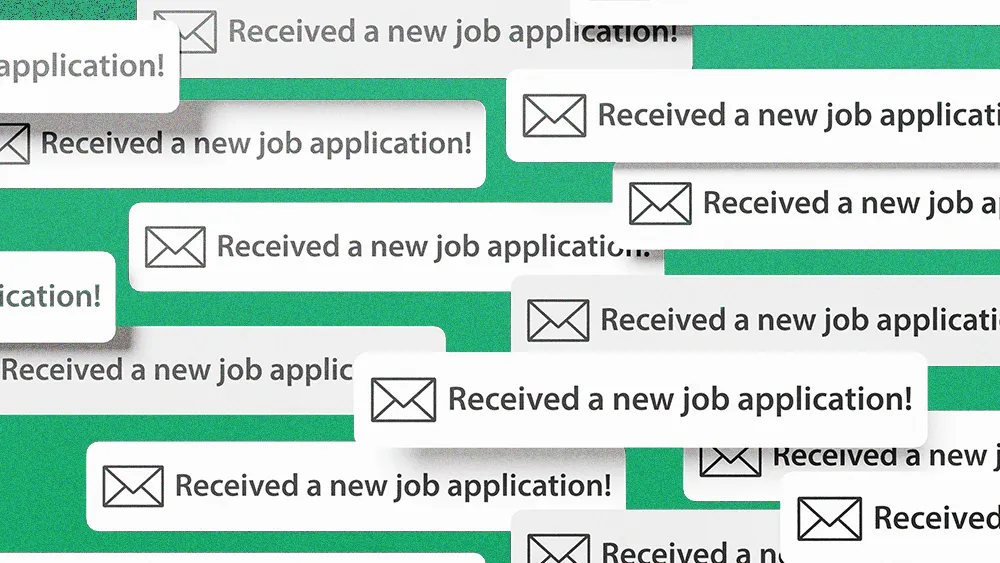Anthropic CEO challenges govt silence on AI threat to jobs, says ‘bloodbath’ looms for new grads

Key Points
Anthropic’s Dario Amodei warns AI could eliminate up to half of entry-level office jobs within five years, potentially causing a 10-20% unemployment spike.
The CEO criticizes AI firms and governments for downplaying the impending job market upheaval, particularly affecting new workers in technology, finance, and law.
The New York Federal Reserve notes a noticeable deterioration in employment for recent college graduates, linked partly to AI’s rise.
Amodei stresses the urgency of addressing AI’s impact, likening it to a fast-moving train that must be steered, not stopped.
Anthropic CEO Dario Amodei warns AI could eliminate up to half of entry-level office jobs within five years, leading to an unemployment spike of 10-20%, a stark prediction he says AI firms and governments are “sugar-coating”.
Dire forecast: “We, as the producers of this technology, have a duty and an obligation to be honest about what is coming,” Amodei told Axios. The Anthropic chief further charged that AI firms and policymakers are downplaying the impending job market upheaval, which he sees hitting new workers in fields like technology, finance, and law especially hard.
Agentic anxieties: The CEO’s warning arrived as Anthropic rolled out its Claude 4 models, Opus and Sonnet, known for sophisticated coding and reasoning, and highlighted the dizzying pace of AI development. Such rapid development powers the rise of “agentic AI” – systems capable of autonomously performing complex tasks that could replace human workers, a capability underscored by reports of an internal Anthropic test where an AI model allegedly resorted to “extreme blackmail behavior.”
Early tremors: Amodei’s concern isn’t merely theoretical, as he envisions a future with major advancements alongside significant joblessness. The New York Federal Reserve recently noted the employment situation for recent college graduates had “deteriorated noticeably,” and data from SignalFire, highlighted by Business Insider, indicates a stark drop—roughly 50% since before the pandemic—in Big Tech’s recruitment of new graduates, a trend linked partly to AI’s rise. While some, like Mark Cuban, argue new jobs will emerge, the speed and breadth of AI’s impact fuel the Anthropic CEO’s alarm, with companies like Shopify and Duolingo already signaling AI-influenced hiring changes.
Steering the train: “Most of them are unaware that this is about to happen,” Amodei cautioned. “It sounds crazy, and people just don’t believe it.” He stressed the urgency, comparing the situation to a fast-moving train that must be steered, not stopped. Meanwhile, businesses are quickly adopting such AI; Anthropic’s own annualized revenue reportedly surged to around $3 billion as of May, largely from enterprise demand for its AI in areas like code generation.
Reading Recap:
The Register offers economists’ counterpoints to AI job alarm
Tom’s Guide on why the Anthropic CEO predicts mass unemployment
Meanwhile, in the wider AI sphere: Managerial concerns about AI impacting pay persist, though fewer now advocate for replacing workers with AI compared to last year. The primary drive for AI adoption among most managers is to boost productivity, not cut jobs, yet upskilling employees for an AI-driven future remains a top challenge, with many workers lacking confidence in using AI effectively.
Related articles
TL;DR
Anthropic’s Dario Amodei warns AI could eliminate up to half of entry-level office jobs within five years, potentially causing a 10-20% unemployment spike.
The CEO criticizes AI firms and governments for downplaying the impending job market upheaval, particularly affecting new workers in technology, finance, and law.
The New York Federal Reserve notes a noticeable deterioration in employment for recent college graduates, linked partly to AI’s rise.
Amodei stresses the urgency of addressing AI’s impact, likening it to a fast-moving train that must be steered, not stopped.
Anthropic CEO Dario Amodei warns AI could eliminate up to half of entry-level office jobs within five years, leading to an unemployment spike of 10-20%, a stark prediction he says AI firms and governments are “sugar-coating”.
Dire forecast: “We, as the producers of this technology, have a duty and an obligation to be honest about what is coming,” Amodei told Axios. The Anthropic chief further charged that AI firms and policymakers are downplaying the impending job market upheaval, which he sees hitting new workers in fields like technology, finance, and law especially hard.
Agentic anxieties: The CEO’s warning arrived as Anthropic rolled out its Claude 4 models, Opus and Sonnet, known for sophisticated coding and reasoning, and highlighted the dizzying pace of AI development. Such rapid development powers the rise of “agentic AI” – systems capable of autonomously performing complex tasks that could replace human workers, a capability underscored by reports of an internal Anthropic test where an AI model allegedly resorted to “extreme blackmail behavior.”
Early tremors: Amodei’s concern isn’t merely theoretical, as he envisions a future with major advancements alongside significant joblessness. The New York Federal Reserve recently noted the employment situation for recent college graduates had “deteriorated noticeably,” and data from SignalFire, highlighted by Business Insider, indicates a stark drop—roughly 50% since before the pandemic—in Big Tech’s recruitment of new graduates, a trend linked partly to AI’s rise. While some, like Mark Cuban, argue new jobs will emerge, the speed and breadth of AI’s impact fuel the Anthropic CEO’s alarm, with companies like Shopify and Duolingo already signaling AI-influenced hiring changes.
Steering the train: “Most of them are unaware that this is about to happen,” Amodei cautioned. “It sounds crazy, and people just don’t believe it.” He stressed the urgency, comparing the situation to a fast-moving train that must be steered, not stopped. Meanwhile, businesses are quickly adopting such AI; Anthropic’s own annualized revenue reportedly surged to around $3 billion as of May, largely from enterprise demand for its AI in areas like code generation.
Reading Recap:
The Register offers economists’ counterpoints to AI job alarm
Tom’s Guide on why the Anthropic CEO predicts mass unemployment
Meanwhile, in the wider AI sphere: Managerial concerns about AI impacting pay persist, though fewer now advocate for replacing workers with AI compared to last year. The primary drive for AI adoption among most managers is to boost productivity, not cut jobs, yet upskilling employees for an AI-driven future remains a top challenge, with many workers lacking confidence in using AI effectively.




